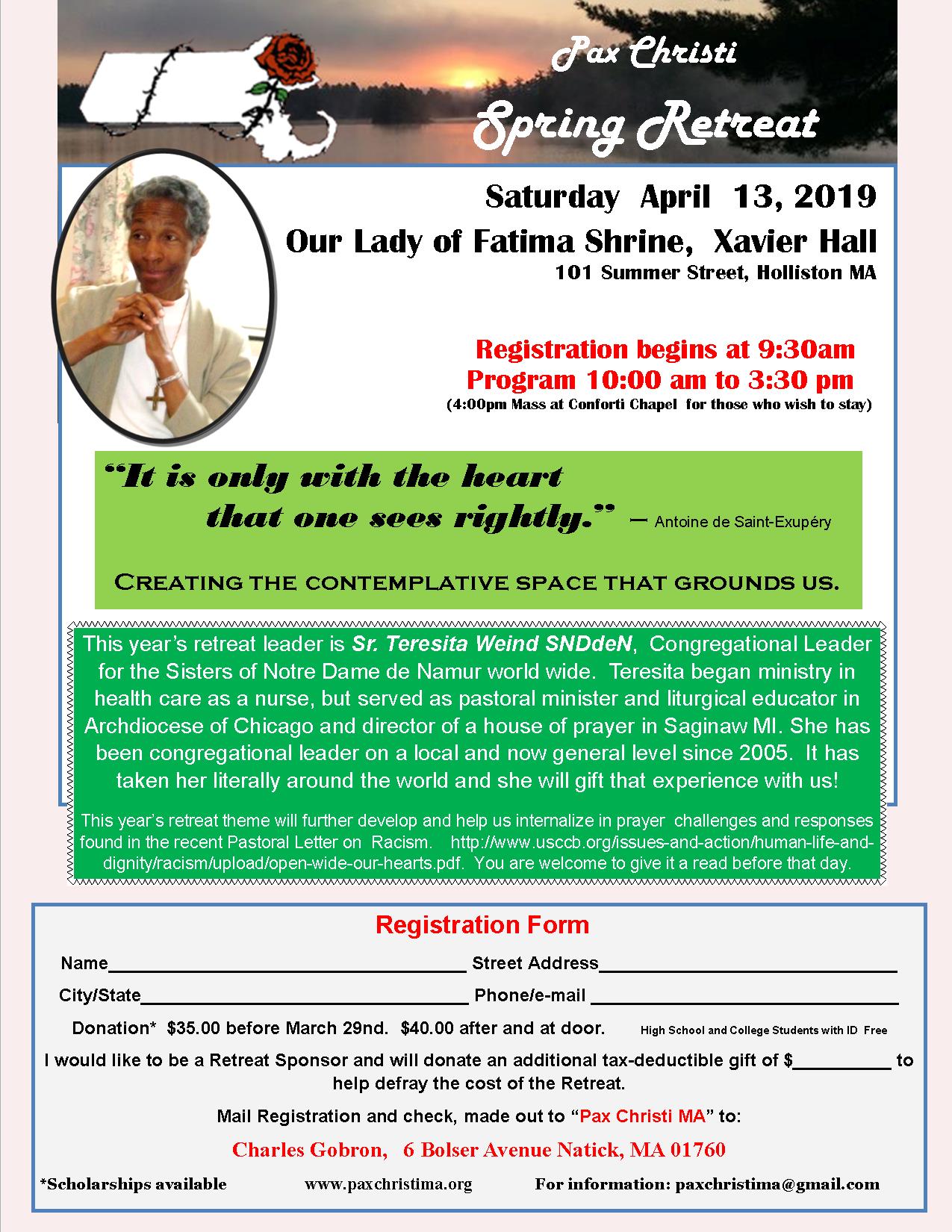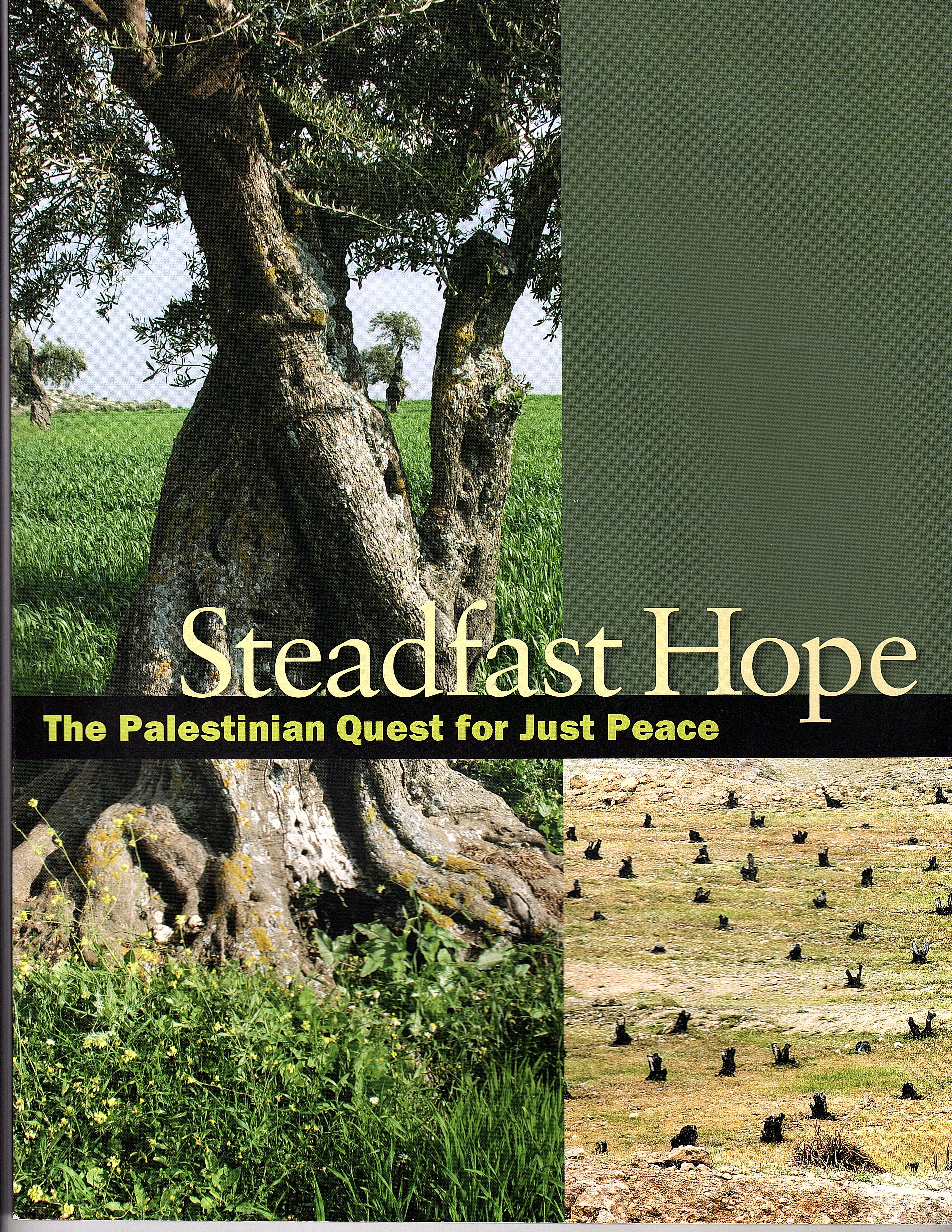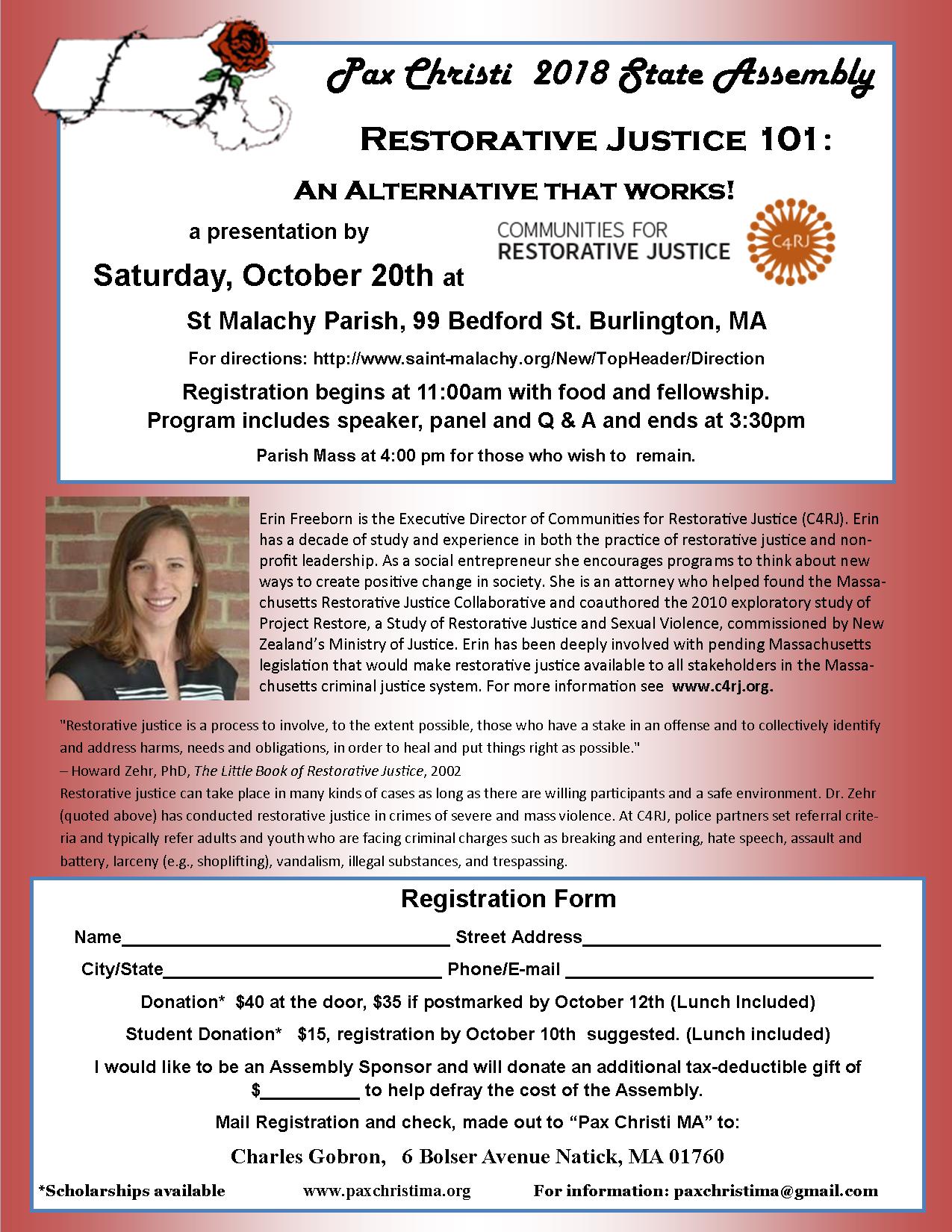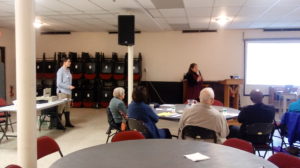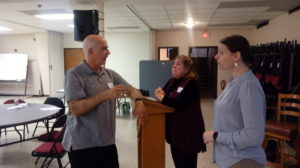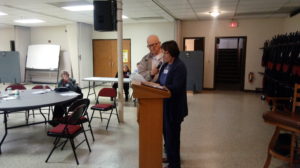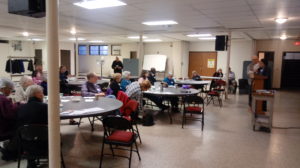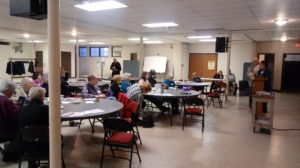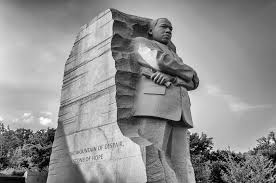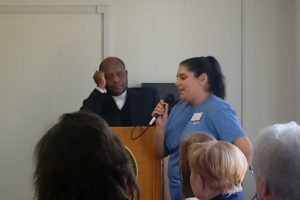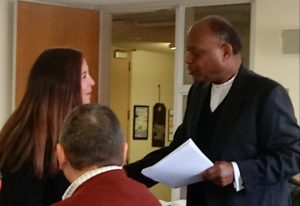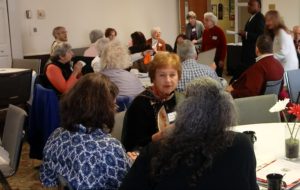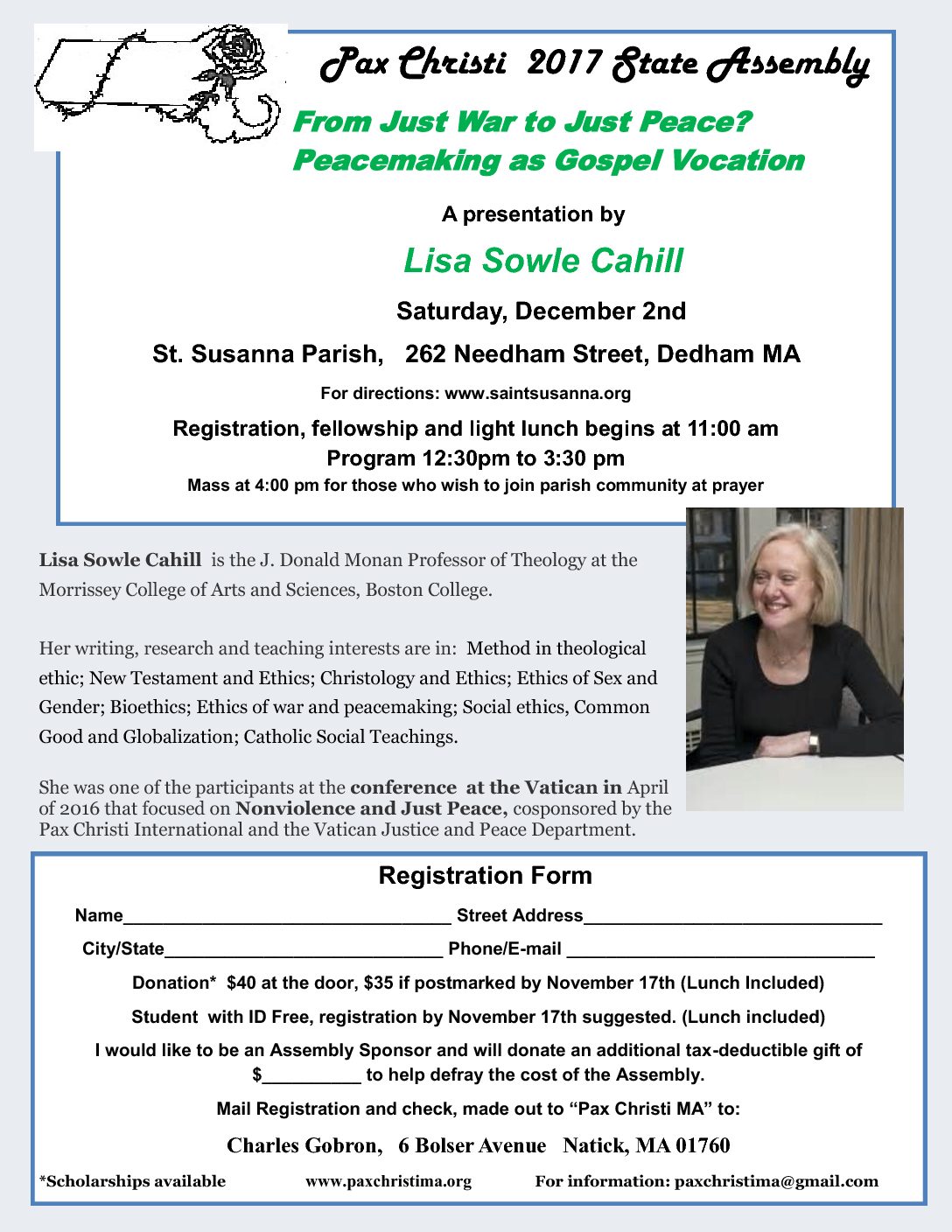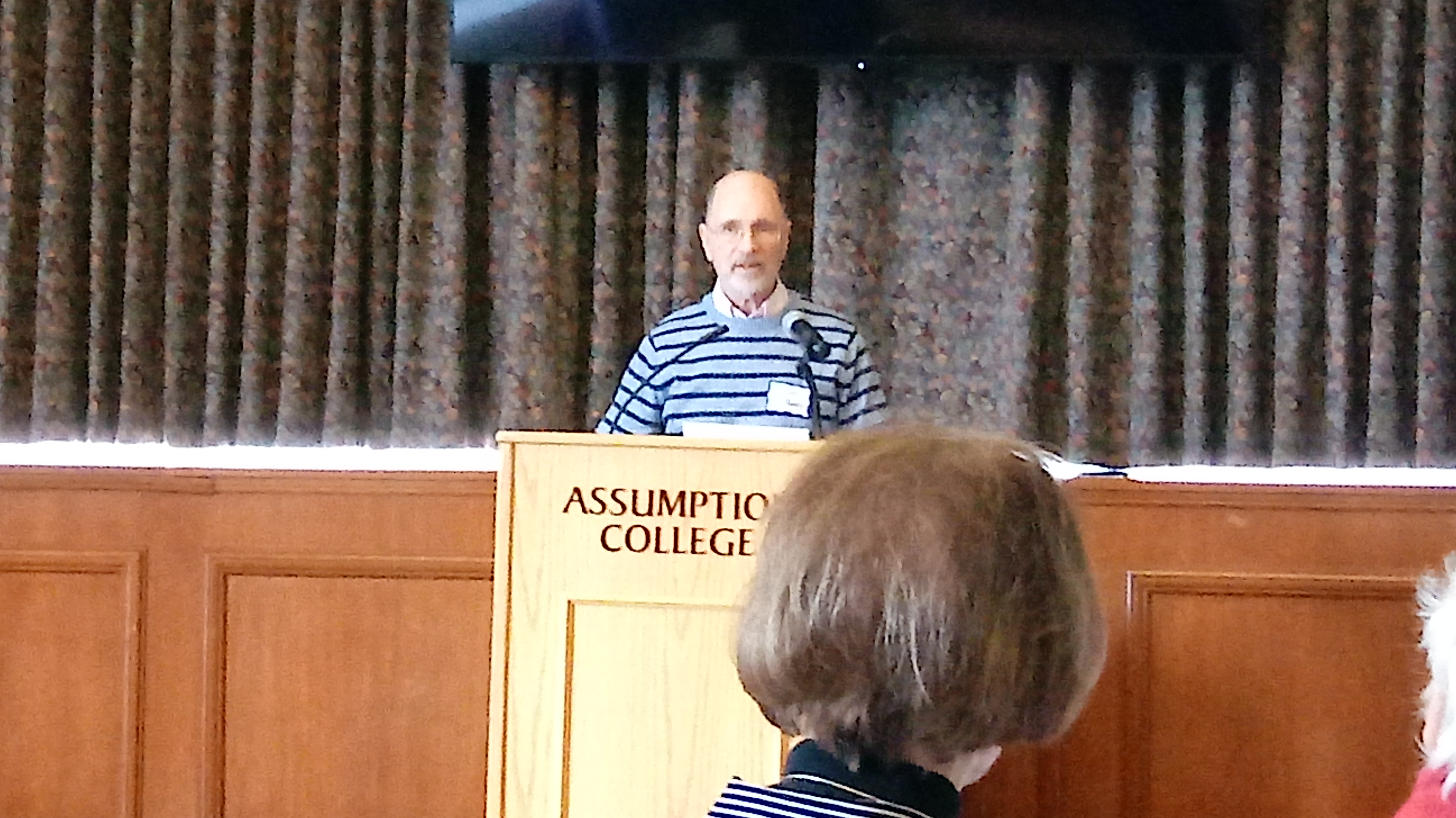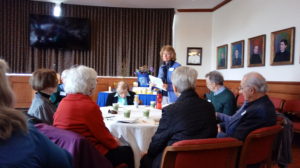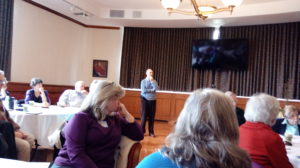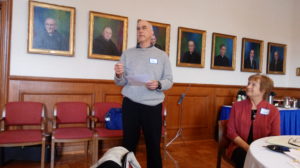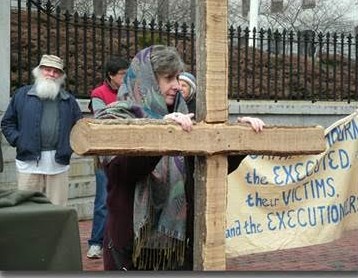The 2017 Pax Christi Massachusetts annual fall Assembly featured as keynote speaker Dr. Lisa Sowle Cahill, the J. Donald Monan professor of theology at Boston College, addressing the topic, “From Just War to Just Peace?; Peacemaking as Gospel Vocation.” The event attracted 60 or so Pax Christi members and supporters to St. Susanna Parish in Dedham on Saturday, December 2, 2017. The author of many articles and books, including ‘Love Your Enemies: Discipleship, Pacifism, and Just War Theory (Fortress, 1994), Dr. Cahill was one of 80 worldwide participants, and the only one from New England, at the April 2016 conference “On Violence and Just Peace,” convened in Rome by Pax Christi International and the Vatican. Rome conference participants (https://nonviolencejustpeace.net) She began with a brief summary of the background paper on Catholic social teaching and just war theory that she had been asked to prepare for the Rome conference. She noted the irony that while every modern Pope (since World War II) has unequivocally condemned war, they all “leave the door open” to the use of violence as a last resort in self-defense. But Dr. Cahill argued that Pope Francis is trying to focus the Church on “nonviolent conflict resolution” in the form of “peacebuilding.” She described this process as the finding of common ground between conflicting parties, most often in “the global south,” who are tired of endless warfare and need to find a just and sustainable way of living together. This daily reality, she suggested, makes the academic debate about “just war” vs. “just peace” at best “distracting” and at worst “divisive.” Put another way, she said there is “no just war in practice.” Dr. Cahill also noted that while the Rome conference produced a consensus “Appeal to the Catholic Church to re-commit to the centrality of Gospel nonviolence,” a number of other viewpoints we re-expressed in the “background papers” submitted from around the world. She saw Pope Francis’s World Day of Peace message for 2017 (“Nonviolence: A style of politics for peace”) as a direct outgrowth of the conference. She suggested that we familiarize ourselves with all these documents at the Catholic Nonviolence Initiative web site: https://nonviolencejustpeace.net/ After wryly commenting that “proof texting” is “not the Catholic way,” Dr. Cahill nevertheless pointed out the “Gospel basis of nonviolence” in several passages from Scripture, especially the sermon on the mount (Matthew 5:38-44). Dr. Lisa Cahill (bc.edu) In response to several questions following her remarks, ably solicited Oprah-style via mobile microphone by PCMA board member John Monaco, Dr. Cahill: revealed that she’s working on an updated edition of ‘Love Your Enemies’ ; and affirmed her belief in a “preferential option for pacifism” in contemporary Catholicism. This year’s Assembly took the innovative form of beginning with a light lunch and social time at 11:00 am, followed by the keynote at 12:30 pm. Lunch still included the full array of delicious home-made pies and other treats contributed by St. Susanna parishioners at prior Pax Christi events there. At the annual PCMA business meeting after the keynote, the 2017 peacemaker award went to Bill Toller of Springfield, whose separate profile in this issue more than establishes his bona fides. An afternoon session facilitated by Pax Christi MA co-coordinator Fr. Rocco Puopolo, drew many thoughtful responses to three questions following up on Dr. Cahill’s presentation:
1. What is your vision of the ways and means to move forward with the “Appeal” that arose out of the Vatican conference in April 2016?
2. How can we make this information available to parishes throughout the state?
3. What “best practices” in your nonviolent peacemaking life seem to carry seeds of hope for change? A number of concrete suggestions, from local bulletin inserts, to collaborative support with other like-minded organizations for refugees, to further contacts with Pax Christi USA and our Bishops, promised that Dr. Cahill’s reminder about the power of public opinion to create change would not go unheeded.
[from the Winter-Spring 2018 Newsletter, article by Mike Moran]

